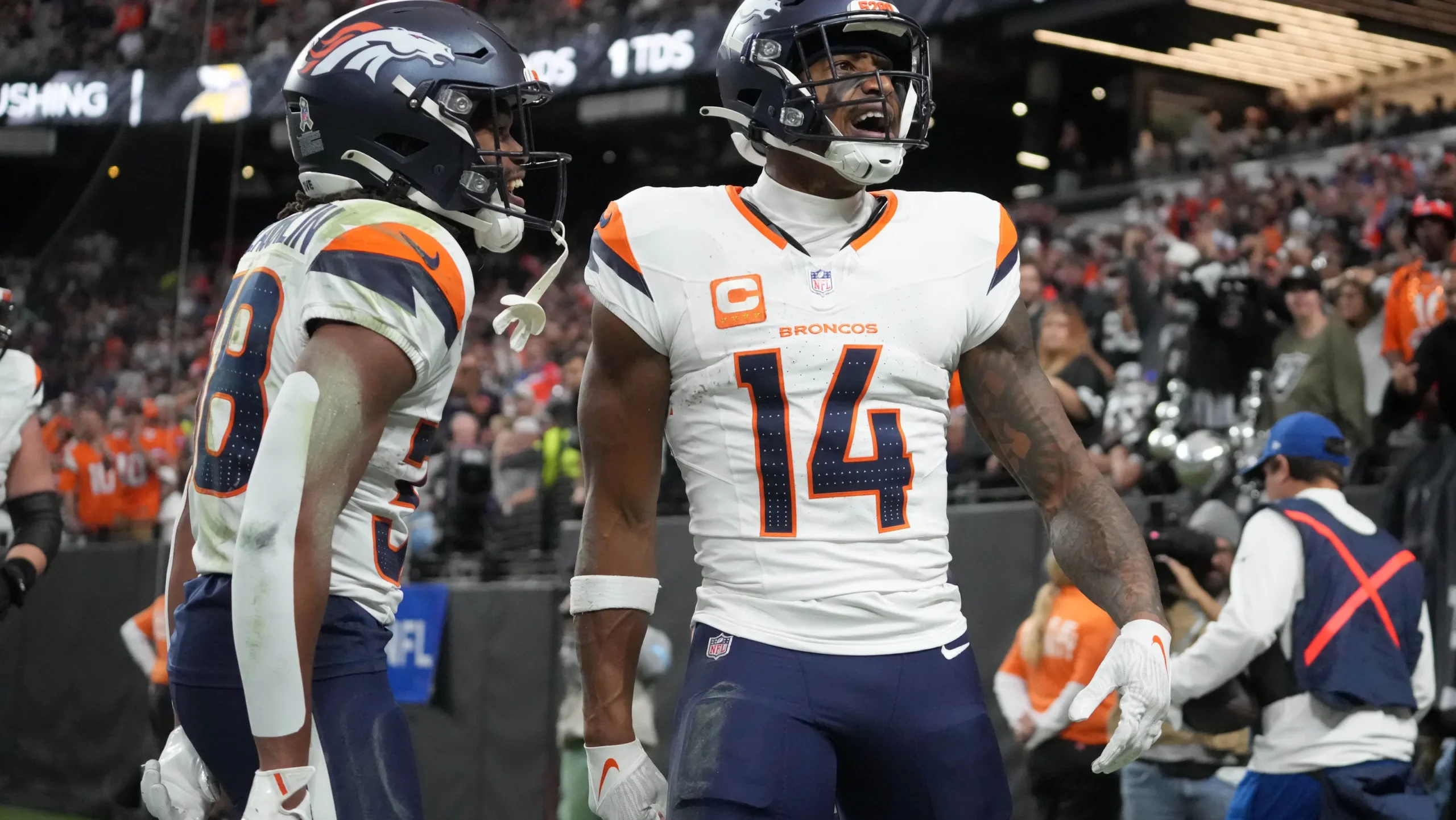Introduction
In one of the most talked-about clashes of the season, the Denver Broncos vs Cleveland Browns match player stats painted a vivid picture of determination, strategy, and standout performances. This high-stakes NFL encounter wasn’t just a battle between two storied franchises—it was a showcase of individual brilliance and team dynamics. Whether you’re a die-hard fan or a stats enthusiast, understanding how each player performed offers valuable insights into the game’s outcome and broader season narratives.
The Broncos and the Browns, both known for their rich football traditions, brought intensity to the field, and this matchup didn’t disappoint. With playoff implications and pride on the line, each yard, tackle, and touchdown carried weight. In this comprehensive article, we’ll break down the top player stats, highlight pivotal moments, and analyze what these numbers reveal about each team’s strengths and weaknesses.
Game Overview and Context
The game kicked off with heightened expectations, especially considering both teams were aiming to solidify their standings. The Denver Broncos entered the matchup looking to extend a winning streak and assert defensive dominance. Meanwhile, the Cleveland Browns were eager to prove their mettle despite injuries and lineup adjustments.
The atmosphere was electric, and fans were treated to a rollercoaster of a game featuring aggressive play-calling, explosive runs, quarterback duels, and timely interceptions. The Denver Broncos vs Cleveland Browns match player stats offer a detailed look into how the game unfolded and who truly made a difference on the field.
Offensive Player Stats
Denver Broncos Key Offensive Stats
Quarterback Russell Wilson
-
Completions/Attempts: 21/32
-
Passing Yards: 235
-
Touchdowns: 2
-
Interceptions: 0
-
Passer Rating: 108.4
Wilson demonstrated excellent control and vision throughout the game, using his mobility and precision to lead crucial drives.
Running Back Javonte Williams
-
Rushing Attempts: 17
-
Rushing Yards: 85
-
Touchdowns: 1
-
Receptions: 4
-
Receiving Yards: 35
Williams contributed both on the ground and through the air, balancing the Broncos’ attack effectively.
Wide Receiver Courtland Sutton
-
Receptions: 6
-
Receiving Yards: 91
-
Touchdowns: 1
Sutton was a reliable target, using his size and route-running ability to create key plays.
Cleveland Browns Key Offensive Stats
Quarterback Dorian Thompson-Robinson
-
Completions/Attempts: 19/30
-
Passing Yards: 189
-
Touchdowns: 1
-
Interceptions: 1
-
Passer Rating: 82.6
Thompson-Robinson showed poise under pressure but struggled at times against Denver’s tough secondary.
Running Back Jerome Ford
-
Rushing Attempts: 14
-
Rushing Yards: 64
-
Receptions: 3
-
Receiving Yards: 22
Ford ran hard between the tackles and made key plays in short-yardage situations.
Wide Receiver Amari Cooper
-
Receptions: 5
-
Receiving Yards: 88
-
Touchdowns: 1
Cooper showcased elite footwork and hands, giving the Browns consistent production in the passing game.
Defensive Player Stats
Denver Broncos Defensive Standouts
Linebacker Alex Singleton
-
Total Tackles: 11
-
Solo Tackles: 7
-
Assisted: 4
-
Tackles for Loss: 2
Singleton flew around the field, plugging run gaps and limiting Cleveland’s YAC.
Safety Justin Simmons
-
Total Tackles: 8
-
Passes Defended: 2
-
Interceptions: 1
Simmons was the heart of the secondary, disrupting passes and capitalizing on poor throws.
Defensive End Zach Allen
-
Total Tackles: 5
-
Sacks: 1.5
-
QB Pressures: 4
Allen’s presence off the edge forced hurried throws and disrupted Cleveland’s offensive rhythm.
Cleveland Browns Defensive Leaders
Linebacker Jeremiah Owusu-Koramoah
-
Total Tackles: 10
-
Sacks: 1
-
Tackles for Loss: 2
Fast and aggressive, Jeremiah flew sideline to sideline all game.
Defensive Tackle Dalvin Tomlinson
-
Total Tackles: 6
-
QB Hits: 3
-
Run Stops: 3
Tomlinson clogged up the middle and made Denver’s interior running tough.
Cornerback Denzel Ward
-
Passes Defended: 3
-
Tackles: 4
Ward battled against Sutton and Jeudy, managing to limit big plays despite the Broncos’ passing efficiency.
Special Teams Stats
Denver Broncos Kicker Wil Lutz
-
Field Goals: 2/2
-
Longest FG: 47 yards
-
Extra Points: 3/3
Lutz was perfect on the day, helping Denver maintain their lead with accurate kicking.
Cleveland Browns Punter Corey Bojorquez
-
Punts: 5
-
Average Yards: 46.2
-
Inside 20: 3
Bojorquez helped flip field position effectively, pinning the Broncos deep multiple times.
Key Game Moments
-
Second Quarter Drive: Russell Wilson orchestrated a 75-yard drive capped by a touchdown to Sutton, shifting momentum.
-
Fourth Quarter Interception: Justin Simmons picked off Thompson-Robinson when the Browns were driving for a tying score.
-
Final Defensive Stand: Denver’s front seven held strong in the final two minutes, forcing a turnover on downs to seal the win.
Impact on Season Standings
This result had significant implications. With the win, the Broncos continued to climb the AFC West standings, improving playoff prospects. Meanwhile, the Browns, though still in contention, face mounting pressure amid quarterback inconsistencies and a tough remaining schedule.
Statistically, the Denver Broncos vs Cleveland Browns match player stats reflect a game where efficiency and defensive execution won the day. Denver’s fewer mistakes, better third-down conversions, and key takeaways shaped the game’s result.

Frequently Asked Questions (FAQs)
Who was the top performer in the Denver Broncos vs Cleveland Browns match?
Russell Wilson stood out with 2 passing touchdowns, 235 yards, and zero turnovers, guiding the Broncos’ offense effectively.
What were the final stats for Courtland Sutton?
Sutton had 6 receptions, 91 yards, and 1 touchdown, making crucial catches in the red zone and on third downs.
How did Dorian Thompson-Robinson perform?
He completed 19 of 30 passes for 189 yards, 1 touchdown, and 1 interception. He showed potential but struggled against Denver’s coverage.
Which defense had more impact in the game?
The Broncos’ defense had the edge, generating a game-sealing interception and applying consistent pressure on the Browns’ quarterback.
Were there any injuries in the game?
Yes, both teams had minor injuries. A few players were evaluated for concussions and cramps but no season-ending injuries were reported.
What role did special teams play in this matchup?
Special teams were consistent for both sides. Wil Lutz’s perfect kicking day provided key points, while Cleveland’s punter helped with field control.
Who led the game in tackles?
Alex Singleton led all defenders with 11 total tackles, playing a vital role in limiting the Browns’ rushing attack.
What are the playoff implications of this game?
With this win, the Broncos boost their playoff chances, while the Browns now face a tougher road with limited room for error.
Conclusion
The Denver Broncos vs Cleveland Browns match player stats tell the story of a well-fought NFL showdown. With critical contributions from both star players and unsung heroes, the game highlighted the importance of balance between offense, defense, and special teams. Denver’s solid quarterback play, disciplined defense, and clutch performances helped them edge out the Browns in a contest that will resonate in playoff discussions.
As both teams look ahead, the lessons from this game—controlling turnovers, executing on third down, and capitalizing on key moments—will shape how they approach the remainder of the season. For fans, analysts, and fantasy football managers, these detailed stats are more than numbers—they’re a roadmap to understanding one of the NFL’s most compelling matchups.












